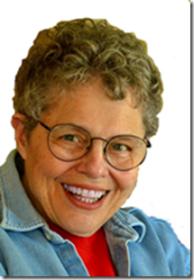 Consider This
Consider This
By
LC Van Savage
BRING BACK THOSE LAZY, CRAZY DAYS OF THE (18)70s
Back in the Seventies, I read an article authored by a woman who seemed to be wallowing in a huge amount of guilt because she had a decent sum of money, a good health plan, a home, car, husband, some kids and a dog. The reason she was feeling this was because she knew she was serendipitously living an easy life and was bothered by the fact that her foremothers had not had one.
Thus she wrote an astonishing article trying to convince readers that the women of her day worked much harder in their homes than her foremothers had in theirs. I was stupefied at such a treatise. Her hypothesis was of course, several miles past stupid.
Lady author is no longer around to defend her theory, so this’ll be easy. Thus, let us compare just a couple of chores done by her 1970’s housewife, and the housewife of the 1870s. (Remember now, when lady author wrote her article the H word was not a dirty word.)
For example, lady author stated that housewives of her generation had horrendous laundry issues. They had to do all that sorting, then toss the clothing into an electric washer after sprinkling in some powdered soap, haul the clothing from it, heave it all into the dryer, then pull it all out and fold it. No ironing needed because the dryer would get the wrinkles out. Then came the backbreaking chore of bellowing at family members to haul their clean clothes to their rooms and put them away or else.
Foremother by comparison, had to first make the soap for her washing chore that entailed ashes and rendered fat from the barnyard hog she’d recently slaughtered, heating huge cauldrons of boiling water, all outside, all year long, all heated with wood she’d first chopped. She’d gather the clothes, drop in the soap, boil and stir it all, pull the clothes heavily from the pot, rinse, wring and hang them outside in any weather all year ‘round, bring them all in, often freeze-dried, mend the rips, and then iron a dozen or so pieces with heavy unelectric irons heated alternately on a roaring wood stove she’d first fed with small logs chopped by her. Then she’d get to do it all over again the next week, if her last washing chore hadn’t finished her off.
Lady author moves her index finger one eighth of an inch to warm her home. Foremother chops and hauls wood to constantly feed the big kitchen stove, the only source of heat for the family.
Lady author needs some bread for dinner, gets into her warm car in the garage, turns a key, pushes her foot down on the accelerator, zooms to a store, gets the bread, zooms home, parks the car, goes inside, eats the bread.
Foremother needs some bread, goes to the barn, hitches the horse to the wagon, climbs aboard, gets to the general store in a few hours, gets the ingredients for bread (that which she hasn’t had to grow first) takes them home, and puts the horse away. She’ll check the wagon over for needed repairs in the morning. But first Dobbin has to be rubbed down, fed and watered and then all the other animals she owns need her attention too. She finally goes inside, mixes the bread ingredients and while it rises she stuffs and sews up a few mattresses with corn husks. She then kneads the huge mound of dough, and bakes ten loaves in her old oven heated by—you know.
Lady author takes a long, hot shower in the morning. Foremother treks out to the pump in the yard, finds it’s frozen, takes inside a bucket of frozen rainwater from the porch, hacks some pieces from it, melts them in a pot on the you-know-what, and splashes her face clean. Sheer luxury! Yep, they sure had it lots easier. Lady author was a dope.
|